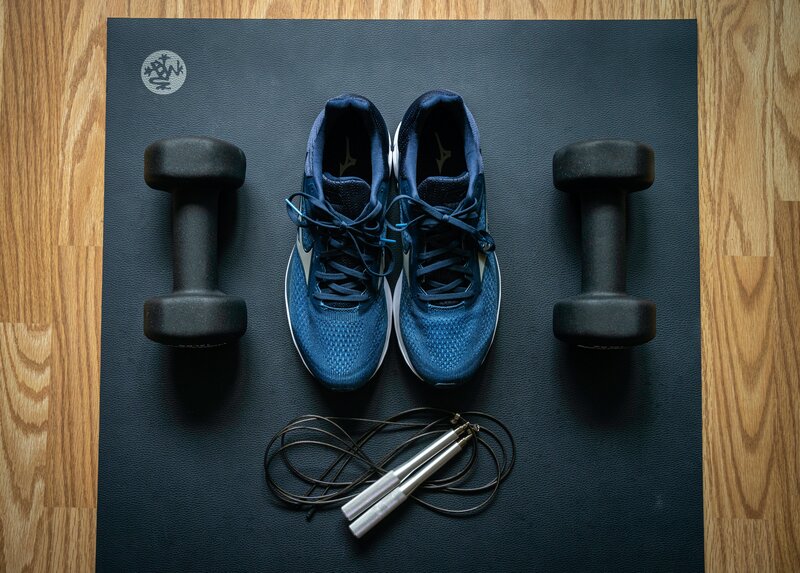When the prohibition went into effect on January 17, 1920, thousands of formerly legal bars and salons across the United States closed down. People who wanted to indulge in liquor had two options: to buy from questionable sources known as bootleggers or to visit unlicensed, private bars, aka speakeasies. The latter gains its name from the fact that you have to speak a password to gain access.
Exactly a hundred years later, a new type of speakeasy has emerged: gyms that have clandestinely opened their doors to select a few members. Lockdowns caused by the pandemic have inevitably created a black market for working out.
There’s a ton of reasons as to why gyms and studios are secretly opening despite the risk of hefty fines or even shutdown. From merely not knowing enough about the coronavirus, to an anarchic middle finger to The Man, illegal gyms are happening – and they’re happening across the world.
The pandemic prohibition
People want what they can’t have. During the first lockdown, we saw an unlikely demographic of protestors taking to the streets of Florida to demonstrate against gym closures.
Hundreds of people clad in workout gear protested against working out outside by working out outside. While that really seemed like a problem that solved itself, such acts inadvertently put pressure on fitness facilities to open up in some form or another.
Many facilities offered virtual training , digital fitness options, and outdoor group sessions; some chose to throw caution to the wind and stay open off the books.
Members who were deemed worthy of keeping the secret were informed via word of mouth. According to the BBC, some even guilted their members into supporting them through the message of empowerment.
Speakeasy gyms: It’s worth the risk
An abrupt loss of revenue is a driving factor for gyms opening illegally. Mandates and messages of ‘we’re in this together’ don’t pay the bill of business owners who are on the verge of bankruptcy.
The risk is worth the revenue. Many couldn’t afford to stay closed, especially during the second lockdown that threatened to push businesses over the edge they were already teetering on.
“But… we’re keeping things safe”
Germs spread fast in gyms. Humid and confined spaces with shared equipment are breeding grounds for bacteria and viruses. Couple that with people breathing heavily and sweating profusely, and you’ve got a potential outbreak zone on your hands.
Nevertheless, gym owners who chose to open covertly have rationalized their actions: we’re being safe, we offer hand sanitizer, we’re encouraging masks/social distancing… you name it.
The other justification is that people who attend fully understand the risks associated with speakeasy gyms. The decision doesn’t weigh too heavily on their mind knowing that their members are fully in on it.
Illegal gyms are a lifeline for some people
If there’s one thing that’s become clear during this pandemic, it’s the fact that we’ve taken so much of our freedom of mobility and means of forming social connections for granted.
While some of us may put off making full use of our gym memberships, for many people, fitness is a lifeline.
A study by the National Institutes of Health (NIH) shows that exercising regularly can be just as effective as antidepressant medication for mild to moderate depression. Exercising for just an hour a week prevents 12% of depression cases in the future. Exercising causes actual, observable structural changes to the brain.
Working out facilitates the development of neural pathways, reduces stress, and does all those good things that make you feel like… well, you.
For many people who see themselves deteriorating both mentally and physically as a result of not working out, speakeasy gyms are the fix they needed – coronavirus be damned.
The first rule of speakeasy gyms
You don’t talk about speakeasy gyms. They don’t tout their questionable business model from the rooftops. To get invited to a speakeasy gym, you have to be ‘in the circle’. These gyms only open their doors to long-term or high-paying clients, and even then, they do so with discretion.
Another rule is to not give the gym away. Whether it’s parking your car a little down the road to not overcrowd the parking lot, or not explicitly carrying in a gym bag dressed to the nines in Nike, there’s a playbook to keeping an illegal gym on the down-low.
But, why did digital workout options not suffice?
A lack of training equipment at home and basic gym equipment being back-ordered until the end of space-time as we know it is cited as the main difficulty when it comes to working out at home.
But there’s more to it than that, especially in this day and age where fitness apps and wearables are dominating the health scene . When you lift the veil on who’s actually patronizing these speakeasy gyms, you’ll see that the digital fitness crowd is very different from the illegal gym crowd.
Hard-core gym-goers have favorite machines and favorite exercises that are non-negotiable. They love to push their limits with equipment that you simply do not have at home.
Furthermore, there’s the community aspect of gyms . People who depend on group classes like yoga or spinning tend to feel disconnected. The fact that these classes are already ‘socially distanced’ makes it easy to justify attending illegal gym classes.
On top of that, there are specialized gyms like bouldering and rock climbing – have you ever tried building a climbing wall at home? Many climbers did, but route-setting was another problem altogether.
If the tide does end up turning sooner than later, speakeasy gyms will go the way of speakeasy bars and become a thing of the past. A jarring difference is that one is inherently more dangerous than the other.

